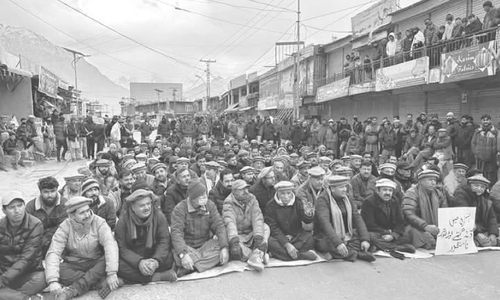LEIDSCHENDAM: An international court sentenced a fugitive Hezbollah member on Friday to five life jail terms for the 2005 assassination of Lebanese prime minister Rafic Hariri and 21 other people.
Salim Ayyash, 57, was found guilty in absentia of murder and terrorism on August 18 by the Netherlands-based Special Tribunal for Lebanon over the huge suicide bombing that killed the billionaire politician and injured 226 others.
Ayyash remains on the run. Hassan Nasrallah, the head of the Hezbollah movement, refusing to hand him over or to recognise the UN-backed court.
“Mr Ayyash participated in an act of terrorism that caused mass murder,” chief Judge David Re said as he announced the sentence.
“The trial chamber is satisfied that it should impose the maximum sentence for each of the five crimes of life imprisonment, to be served concurrently.” The court has issued an international arrest warrant for Ayyash for the “extremely grave” crimes.
The Hezbollah chief’s statements on refusing to surrender Ayyash led Judge Re to make the “inference” that he was being shielded from justice, he said.
Hariri’s son Saad, who himself went on to become premier, called on Lebanese authorities to help bring Ayyash to justice.
“The sentence issued against Salim Ayyash should be executed and Lebanese judicial and security officials should fulfill their duties in this regard,” Hariri said in a post on Twitter.
After a years-long trial, Ayyash was convicted in August of conspiracy to commit a terrorist act, committing a terrorist act using an explosive device, the “intentional homicide” of Hariri, and of 21 other people, and attempted homicide of those injured in the attack.
The court said there was not enough evidence to convict three other defendants who were also on trial in absentia — Assad Sabra, Hussein Oneissi and Hassan Habib Merhi.
The attack on Hariri, who served as Lebanon’s prime minister until he resigned in October 2004, changed the face of the Middle East.
He was killed in February 2005 when a suicide bomber detonated a van filled with explosives as his armoured convoy drove past on the Beirut seafront.
The “massive” bombing that left an 11-metre (33-foot) wide crater was “intended to and in fact inflicted terror”, the court said.
The attack triggered mass protests that drove Syrian forces out of Lebanon after three decades. Hariri had opposed the Syrian presence in Lebanon.
Judges said Ayyash was at the centre of a network of mobile phone users who scoped out Hariri’s movements for months before his assassination.
Published in Dawn, December 12th, 2020














































